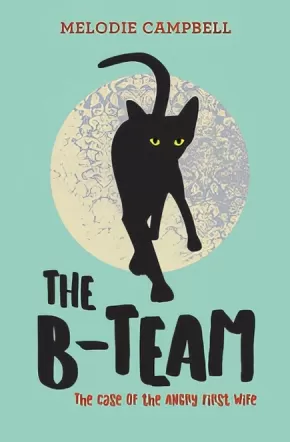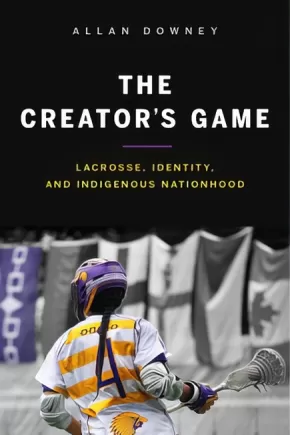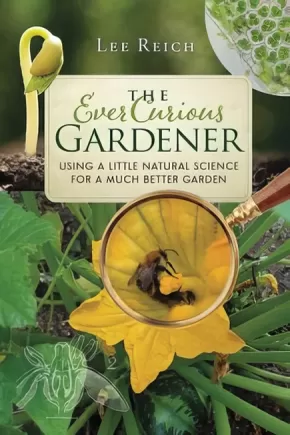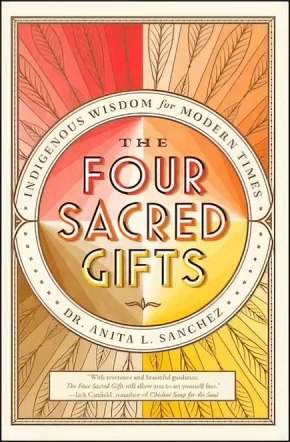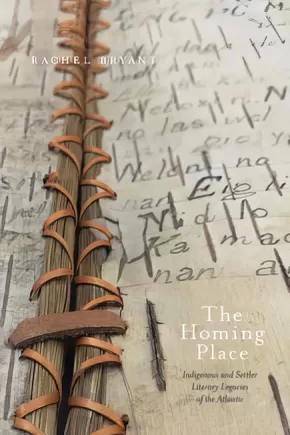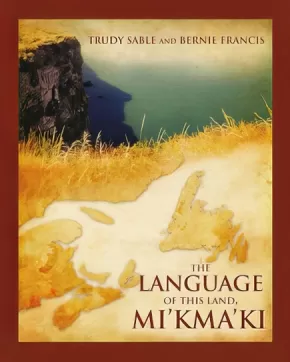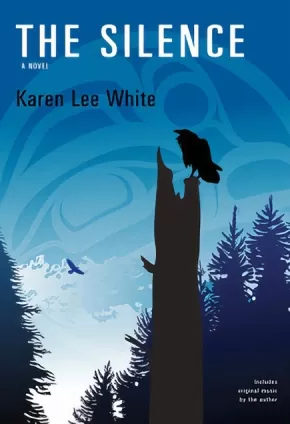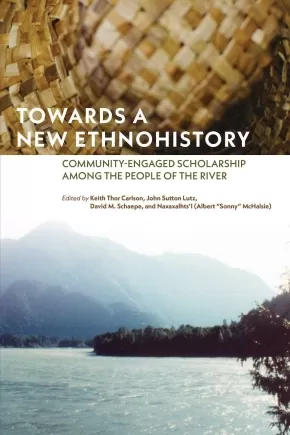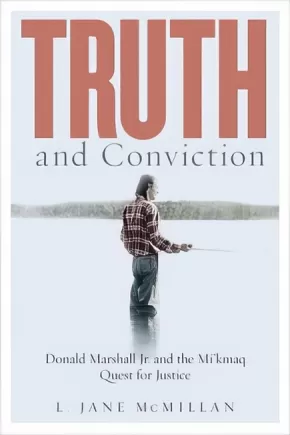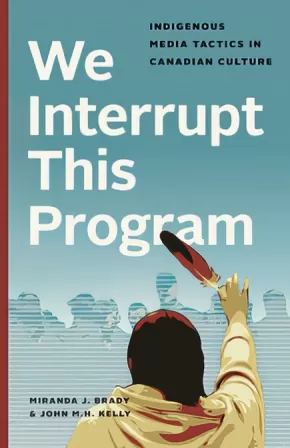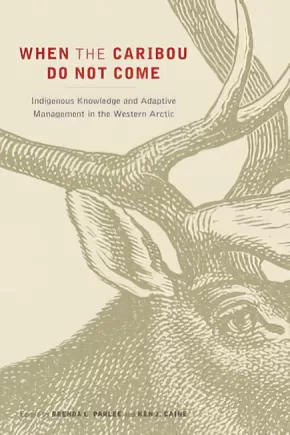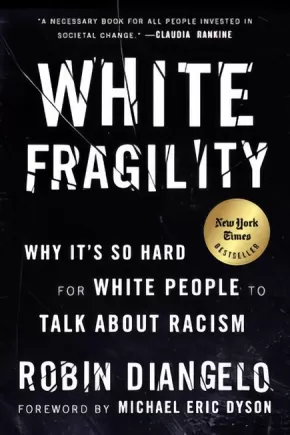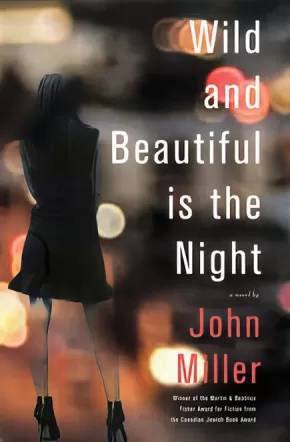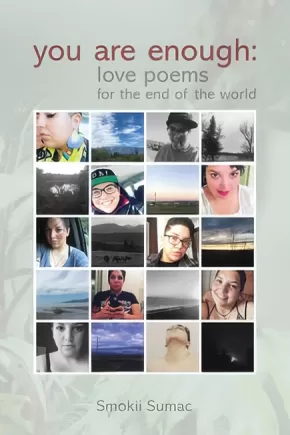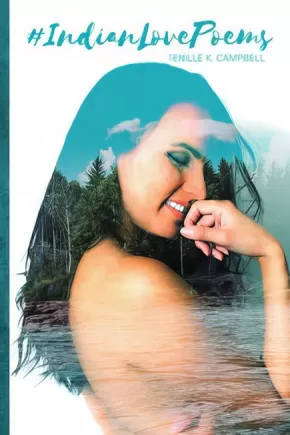Adult Book
Synopsis:
Del's great-aunt, Kitty, has retired from a life of crime and embarked on a new venture, the B-Team. Although Del works at an animal shelter by day, by night she, her great-aunt and their cohorts, Dino and Ritz, use their criminal skills to right wrongs. In this fun book, the modern-day Robin Hoods set out to return a necklace to its rightful owner but along the way discover they've been duped by an imposter who also wants to get her hands on the necklace. The problem is, criminals can't go to the police, even if they are on the side of the good. Del comes up with a new plan, and the B-Team saves the day. Not without a few detours along the way.
Reviews
"The latest entry in the publisher's 'Rapid Reads' series of high-low novels aimed at adults with a third-grade reading level, Campbell's humorous mystery is for readers who enjoy a cast of quirky characters with unusual talents. "— Library Journal, January 2018
"Campbell tells a full force mystery novel in a rapid read package…Her style is plot forward, fuelled by feel-real, snappy dialogue that reveals the sense of place right down to the street corner. The B-Team…[is] delivered with intensity and laughter."— Don Graves, Canadian Mystery Reviews, January 2018
"The B-Team is well written, attention grabbing and fun. Once started, most readers will be hooked and have a hard time putting the book down. "— CM Magazine, March 2018
Educator & Series Information
This book is part of the Rapid Reads series. Rapid Reads are short novels and nonfiction books for young adults aged 16+ and adult readers. They are intended for a diverse audience, including ESL students, reluctant readers, adults who struggle with literacy and anyone who wants a high-interest quick read.
Additional Information
144 pages | 4.75" x 7.25"
Synopsis:
Lacrosse has been a central element of Indigenous cultures for centuries, but once non-Indigenous players entered the sport, it became a site of appropriation – then reclamation – of Indigenous identities. The Creator’s Game focuses on the history of lacrosse in Indigenous communities from the 1860s to the 1990s, exploring Indigenous-non-Indigenous relations and Indigenous identity formation. While the game was being appropriated in the process of constructing a new identity for the nation-state of Canada, it was also being used by Indigenous peoples to resist residential school experiences, initiate pan-Indigenous political mobilization, and articulate Indigenous sovereignty. This engaging and innovative book provides a unique view of Indigenous self-determination and nationhood in the face of settler-colonialism.
Additional Information
364 pages | 6.00" x 9.00" | 56 photos
Synopsis:
Curious why caressing your cucumber plants will help them bear more fruit? Or why you should grow oranges from seed even if the fruit is inedible? Or why trees need to sleep and how to help them?
Join acclaimed gardener, scientist, and author Lee Reich on a journey through the delights of your garden in this laugh-out-loud treatise on the scientific wonders of plants and soil. Offering eye-opening insight and practical guidance, coverage includes:
- How to maximize both flavor and nutrition in your garden bounty
- Helping plants thrive during drought
- Outwitting weeds by understanding their nature
- Making the best use of compost
- Tips on pruning and orchard care
- Why the dead language of Latin can make you a better gardener.
The Ever Curious Gardener is an irreverent romp through the natural science of plants and soil, ideal for newer gardeners moving beyond back-of-the-seed-pack planting to experienced gardeners whose curiosity at the wonders of cultivation grows deeper and stronger with each season.
"Behind the pleasures of the successful garden, there are the apparent mysteries. How does it all work? Curious gardeners have questions and Lee Reich answers them as effectively as that favorite science teacher in school did -- clearly and concisely." - Eliot Coleman
"As an ever-curious gardener who seeks to understand the science behind all things gardening, I look to my horticultural heroes for that. Lee Reich is always one of my top go-to authorities. Much to my delight, and no surprise, this book is everything I was hoping and more. Leave it to Lee to blend science with real-world application, mixed with a chuckle or two throughout the pages. A fresh, fun, and fascinating must-read for every curious gardener." - Joe Lamp’l, Creator & Host, PBS’s Growing a Greener World
"As a commercial grower, I don’t read that many gardening books… although I make an exception for Lee’s Reich books. The Ever Curious Gardener explains some of the science behind what’s going on above ground and below ground in your garden and — most important — how you can work with these natural systems to grow plants that are healthier, more productive, and more attractive. For a better garden and more interesting gardening, read this book." - Jean-Martin Fortier, author, The Market Gardener
"The Ever Curious Gardener is a wise and witty book that offers not just the “how-to” of gardening but also the “how come?” By showing you the science behind growing plants, it gives you the tools to follow Nature’s rules – the only ones that count. What Harold McGee is to the cook, Lee Reich is to the gardener." - Barbara Damrosch, author, The Garden Primer and The Four Season Farm Gardener’s Cookbook
"This is perhaps the most readable gardening book that I have ever encountered. Full of carefully presented garden practices supported by scientific know-how, it's fun and informative -- what more can I say?" - Jeffrey Gillman, Director, UNC Charlotte Botanical Gardens and author, The Truth About Garden Remedies
"The Ever Curious Gardener cultivates curiosity and brings out everyone's inner science nerd. Lee Reich’s engaging and authentic style blend science with practical gardening knowledge. Anyone reading these pages is guaranteed to harvest new, insightful knowledge." - Lisa Kivirist, author, Soil Sisters: A Toolkit for Women Farmers and Homemade for Sale
224 pages | 6.00" x 9.00"
Synopsis:
In The Four Sacred Gifts, visionary international business consultant Anita Sanchez, PhD, reveals the timely prophecy entrusted to her by a global collective of indigenous elders—four guiding gifts that “will allow you to set yourself free to live your most successful life…learn how to forgive, to heal, to unite with all life, and to revitalize hope” (Jack Canfield, co-author of Chicken Soup for the Soul).
As we ride the powerful waves of change occurring in our economic, social, political, and physical environment, indigenous wisdom is needed—now more than ever—to guide us to inhabit the fullest and healthiest lives possible.
The Four Sacred Gifts opens your mind and heart to an indigenous worldview that will ultimately free you from fear and empower you to find peace even in the conflicts of our tumultuous world. Based on a prophecy that is now coming true, this book reveals how our world depends on each of us discovering a interconnectedness to people, earth, and animals, in the awareness that we are “all one relation.”
Within these pages, you will find deep wisdom of elders from all continents as they come together to give you four sacred gifts: the power to forgive the unforgivable, the power of unity, the power of healing, and the power of hope. These gifts will guide you to transformation, and support your journey to wholeness.
By following the powerful principles, lessons, and tools found in this book, you will experience personal breakthroughs, become a force for conscious, societal evolution, and learn to live in deeper harmony with all of humanity.
Reviews
"No remedy is more needed in today’s confusing and seemingly chaotic times than the power of simple wisdom. In this beautifully written book, Anita Sanchez draws on her own moving and revealing life experiences to present four gifts of indigenous wisdom that can help us heal ourselves, our communities and our broken world.” — William Ury, co-author of Getting to Yes and author of Getting to Yes with Yourself
"The Four Sacred Gifts is a beautiful answer to why so many people feel separate, alone, and afraid, and how to get back naturally and easily into harmony, connection and love with ourselves, nature and each other. I highly recommend reading and processing all the wisdom of The Four Sacred Gifts." — Christy Whitman, New York Times bestselling author
"In her exquisite book, Anita Sanchez makes an offering to us of the Four Sacred gifts that were given to her by her Elders. Though her own insights and personal stories, she brings to life the power and critical relevance of indigenous wisdom to our times. If you care about the state of the planet, if you are moved by injustice and the all the ways we humans cause suffering to ourselves and others,The Four Sacred Gifts offers the message and good medicine we need to lead a life in balance and help leave a better world for the coming generations." — Robert Gass, co-founder the Rockwood Leadership Institute
Additional Information
224 pages | 5.50" x 8.37" | Paperback
Synopsis:
Can literary criticism help transform entrenched Settler Canadian understandings of history and place? How are nationalist historiographies, insular regionalisms, established knowledge systems, state borders, and narrow definitions continuing to hinder the transfer of information across epistemological divides in the twenty-first century? What might nation-to-nation literary relations look like? Through readings of a wide range of northeastern texts – including Puritan captivity narratives, Wabanaki wampum belts, and contemporary Innu poetry – Rachel Bryant explores how colonized and Indigenous environments occupy the same given geographical coordinates even while existing in distinct epistemological worlds. Her analyses call for a vital and unprecedented process of listening to the stories that Indigenous peoples have been telling about this continent for centuries. At the same time, she performs this process herself, creating a model for listening and for incorporating those stories throughout.
This commitment to listening is analogous to homing – the sophisticated skill that turtles, insects, lobsters, birds, and countless other beings use to return to sites of familiarity. Bryant adopts the homing process as a reading strategy that continuously seeks to transcend the distortions and distractions that were intentionally built into Settler Canadian culture across centuries.
Reviews
"The Homing Place enacts and advocates for a paradigm shift in ‘literary relations’ in North America, revealing the ’invisible wall ’ in colonial perceptions that may at first seem as impermeable as the nation-state borders that divide the continent. Yet just as Indigenous people and homelands have always traversed those borders, so may our readings transcend that wall. Rachel Bryant foregrounds and leads us to acknowledge the active ways our embodied minds evade or engage Indigenous contexts and communities, producing greater awareness of the impacts of our activities as readers and writers, Native people and settlers, those who make policy, and those who are most impacted by it.”— Lisa Brooks
“Bryant’s excavation of US and Canadian exceptionalisms could not be timelier. She shows how Anglo-Atlantic writing has built a ‘system of self-protection’ that has sought to contain Indigenous geographies and indeed Indigenous agency. At the same time, she shows how First Nations have always effectively written back against this system. This book shines new light on settler colonialism and Indigenous resurgence, historic and contemporary, through sharp analyses of some influential but lesser-discussed writers. It belongs on the shelf of every scholar in Indigenous Studies, Canadian Studies, American Studies, Atlantic and Maritime Studies, Material Culture Studies, Cultural Geography, and Literary Criticism, for it creates fresh new dialogues among all of these fields and interests.”— Siobhan Senier
"If you are interested in Indigenous affairs, the history of how the eastern tribes came to be in such dire straits today, and how literature has reflected these changes – and even attempts to embrace and effect change for the better – then The Homing Place will certainly appeal to you."— The Miramichi Reader
Awards
- 2017 Writers’ Federation of New Brunswick Book Award for Non-Fiction winner
- 2018 AUP Book Jacket and Journal Show Selected Entry joint winner
Additional Information
256 pages | 6.00" x 9.00"
Synopsis:
The ancient landscapes of Eastern North America are reflected in the language and cultural expressions of its Indigenous peoples, the Mi'kmaq. The rhythms, sounds and patterns of their language are inextricably bound with the seasonal cycles of the animals, plants, winds, skies, waterways and trade routes.
The Language of this Land, Mi'kma'ki is an exploration of Mi'kmaw world view as expressed in language, legends, song and dance. Using imagery as codes, these include not only place names and geologic history, but act as maps of the landscape. Sable and Francis illustrate the fluid nature of reality inherent in its expression - its embodiment in networks of relationships with the landscape integral to the cultural psyche and spirituality of the Mi'kmaq.
Language has sustained the Mi'kmaq to the present day, a product of a lineage of Elders who spoke it, who danced the dances and walked this land, Mi'kma'ki, carrying its traditions forward despite centuries of cultural disruption, discrimination and degradation.
Additional Information
132 pages | 7.50" x 9.25"
Synopsis:
Karen Lee White holds the torch brightly as a new and powerful voice, her style and sensibility encompassing the traditional and the contemporary. In The Silence, with the Yukon as a canvas, she engages in a deep empathy for characters, emergent Indigenous identity, and discovery that employs dreams, spirits, songs, and journals as foundations for dialogue between cultures.
Leah Redsky is a Salteaux/Salish woman living in Vancouver who struggles with identity and the difficult intercultural dynamics of having a non-Indigenous boyfriend and working for the government. Often conflicted, at odds with her past and current life, things unravel and she suffers a breakdown—the unexpected life twist that is the key to coming to terms with her past. Through a diary, she discovers something terrible happened, yet what that is is unclear until she begins to have dream encounters with Tlingit/Tagish spirits who she knew in the north when she lived a traditional life on the land. Leah must find the strength to accept and integrate past and present so she may move into the future. She will find her power as an Indigenous woman, heal her spiritual and psychological wounds through the resolution of previous traumas, and reconcile her ability to communicate with those in the next world as she comes to understand she has been chosen to be a Medicine Woman/Elder/Cultural Leader. As an added bonus feature, the book comes with an original music CD by the author/musician.
Additional Information
176 pages | 5.50" x 8.00" | Includes a CD
Synopsis:
Towards a New Ethnohistory engages respectfully in cross-cultural dialogue and interdisciplinary methods to co-create with Indigenous people a new, decolonized ethnohistory. This new ethnohistory reflects Indigenous ways of knowing and is a direct response to critiques of scholars who have for too long foisted their own research agendas onto Indigenous communities. Community-engaged scholarship invites members of the Indigenous community themselves to identify the research questions, host the researchers while they conduct the research, and participate meaningfully in the analysis of the researchers’ findings.
The historical research topics chosen by the Stó:lō community leaders and knowledge keepers for the contributors to this collection range from the intimate and personal, to the broad and collective. But what principally distinguishes the analyses is the way settler colonialism is positioned as something that unfolds in sometimes unexpected ways within Stó:lō history, as opposed to the other way around.
This collection presents the best work to come out of the world’s only graduate-level humanities-based ethnohistory fieldschool. The blending of methodologies and approaches from the humanities and social sciences is a model of twenty-first century interdisciplinarity.
Reviews
“At a time when Indigenous sovereignty has come to the fore, this volume sets the ‘gold standard’ for ethical scholarship and provides a roadmap and manifesto for sensible and sensitive decolonization.”– Chris Friday, Professor of History, Western Washington University
“The strength of the collection is its appreciation for and attention to interpreting history with reference to Stó:lō interpretative frames.” – Tyler McCreary, BC Booklook
“In a time when many scholars are looking to decolonize their approaches to research—especially when working with Indigenous communities—this book stands as a clear exemplar of community-engaged research and demonstrates how it can be done well.”– Jennifer Megan Markides, University of Calgary, Qualitative Research in Education
“Exemplifies a new, transdisciplinary approach to ethnohistory, in which the researcher recognizes not only the legacy of settler colonialism in Canada, but also the subjectivity and relativity of their own views and western knowledge as a whole. This new ethnohistory aims to work with the community at all levels of research and form and sustain relationships that last long after fieldwork is conducted. Its hope is to produce scholarship that is cutting edge, complex, accessible and relevant to members of the community.”– Daniel Sims, NICHE
“Settler scholars concerned with disciplinary crises need look no further than this excellent anthology for models of respectful intercommunity engagement, radical methodology and pedagogy, and a paradigm for solidarity work that chooses to develop respectful relationships over moribund agonizing.”– Madeleine Reddon, Canadian Literature
Educator Information
Table of Contents
Introduction
Ch. 1—Kinship Obligations to the Environment
Ch. 2—Relationships
Ch. 3—Crossing Paths
Ch. 4—Stó:lō Ancestral Names, Identity and the Politics of History
Ch. 5—Disturbing the Dead
Ch. 6—Food as a Window into Stó:lō Tradition and Stó:lō-Newcomer Relation
Ch. 7—’Bringing Home all That Has Left’
Ch. 8—Totem Tigers and Salish Sluggers
Ch. 9—’I Was Born a Logger’
Ch. 10—’They Are Always Looking for the Bad Stuff’
Ch. 11—Next Steps in Indigenous Community-Engaged Research
Additional Information
304 pages | 6.00" x 9.00"
Synopsis:
The name “Donald Marshall Jr.” is synonymous with “wrongful conviction” and the fight for Indigenous rights in Canada. In Truth and Conviction, Jane McMillan – Marshall’s former partner, an acclaimed anthropologist, and an original defendant in the Supreme Court’s Marshall decision on Indigenous fishing rights – tells the story of how Marshall’s fight against injustice permeated Canadian legal consciousness and revitalized Indigenous law.
Marshall was destined to assume the role of hereditary chief of Mi’kmaq nation when, in 1971, at the age of seventeen, he was wrongly convicted of murder. He spent more than eleven years in jail before a royal commission exonerated him and exposed the entrenched racism underlying the terrible miscarriage of justice. Four years later, in 1993, he was charged with fishing eels without a licence. With the backing of Mi’kmaq chiefs and the Union of Nova Scotia Indians, he took the case all the way to the Supreme Court to vindicate Indigenous treaty rights in the landmark Marshall decision.
Marshall was only fifty-five when he died in 2009. His legacy lives on as Mi’kmaq continue to assert their rights and build justice programs grounded in customary laws and practices, key steps in the path to self-determination and reconciliation.
This book will appeal to anyone interested in the Donald Marshall story, Indigenous peoples encounters with the law, and social justice issues.
Reviews
"Jane McMillian has written an admirable, engaging, and formidable book about an Indigenous man’s quest for justice against the systemic injustices of Canada." -
Additional Information
288 pages | 6.00" x 9.00" | 10 black and white photographs
Synopsis:
We Interrupt This Program tells the story of how Indigenous people are using media tactics in the realms of art, film, television, and journalism to rewrite Canada’s national narratives from Indigenous perspectives.
Miranda Brady and John Kelly showcase the diversity of these interventions by offering personal accounts and reflections on key moments – witnessing survivor testimonies at the Truth and Reconciliation Commission, attending the opening night of the ImagineNative Film + Media Festival, and discussing representations of Indigenous people with artists such as Kent Monkman and Dana Claxton and with CBC journalist Duncan McCue. These scene-setting moments bring to life their argument that media tactics, as articulations of Indigenous sovereignty, have the power not only to effect change from within Canadian institutions and through established mediums but also to spark new forms of political and cultural expression in Indigenous communities and among Indigenous youth.
Theoretically sophisticated and eminently readable, We Interrupt This Program reveals how seemingly unrelated acts by Indigenous activists across Canada are decolonizing our cultural institutions from within, one intervention at a time.
This book will appeal to wide spectrum of readers – from students and scholars in communications and media studies to those with a general interest in Canadian art, culture, history, journalism, anthropology, and Indigenous studies.
Reviews
"...the book chronicles the breadth of media interventions employed by Aboriginal media creators, foregrounding Indigenous worldviews, agency and resilience while challenging colonial myths. It is a vital resource for anyone seeking to understand Indigenous cultural expression in Canada in the digital age." — Brad Clark, Journalism and Broadcast Media Studies at Mount Royal University, Canadin Journal of Native Studies, Vol. 38, No. 1, January 2018
"[We Interrupt this Program] provides an analytical perspective to help readers reflect on what types of new interruptions may be brewing – or to plan the interventions themselves." — Greg Macdougall, Briarpatch Magazine, June 2018
Educator Information
Table of Contents
Introduction: Indigenous Media Tactics
1 Media Practices and Subversions: Survivor Testimonials in the Truth and Reconciliation Commission
2 IsumaTV’s “Testimony by Isuma”: Online Expressions of Inuit Culture and Assimilation
3 Redfacing, Remediation, and Other Indigenous ArtTactics: Challenging Cultural Institutions
4 imagineNATIVE as Industry Intervention: Supporting and Growing Indigenous Media Makers
5 Reporting News in Indigenous Communities: A Conversation with Journalist Duncan McCue on Respect and Relationality
Conclusion: Media Tactics Old and New
Notes; Works Cited; Index
Additional Information
220 pages | 5.50" x 8.50" | 14 B&W Photos
Synopsis:
In the 1990s, news stories began to circulate about declining caribou populations in the North. Were caribou the canary in the coal mine for climate change, or did declining numbers reflect overharvesting by Indigenous hunters or failed attempts at scientific wildlife management?
Grounded in community-based research in northern Canada, a region in the forefront of co-management efforts, these collected stories and essays bring to the fore the insights of the Inuvialuit, Gwich’in, and Sahtú, people for whom caribou stewardship has been a way of life for centuries. Anthropologists, historians, political scientists, ecologists, and sociologists join forces with elders and community leaders to discuss four themes: the cultural significance of caribou, caribou ecology, food security, and caribou management. Together, they bring to light past challenges and explore new opportunities for respecting northern communities, cultures, and economies and for refocusing caribou management on the knowledge, practices, and beliefs of northern Indigenous peoples.
Ultimately, When the Caribou Do Not Come drives home the important role that Indigenous knowledge must play in understanding, and coping with, our changing Arctic ecosystems and in building resilient, adaptive communities.
This collection is essential reading for multiple groups and interested parties – scientists, scholars, graduate students, wildlife managers, and members and leaders of Indigenous communities.
Reviews
"This book shines a light on the diverse peoples who have come together to share their knowledge and build a new relationship in order to address the very real concern we all have for the wellness of caribou." - Stephen Kakfwi, former premier of the Northwest Territories
"This is a fascinating volume with unusual breadth. Barren-ground caribou are one of the North’s most important biological and cultural resources. When the Caribou Do Not Come blends the perspectives of Indigenous and academic specialists and allows them to retain their own voice. The understandings of human-caribou interaction expressed in this book will lead researchers, Indigenous and non-Indigenous users, and wildlife managers to reflect on current and future practices." -
Additional Information
280 pages | 6.00" x 9.00" | 15 figures, 12 tables, 6 photos, 3 maps
CONTENTS:
Foreword / Fikret Berkes
Introduction / Brenda Parlee and Ken Caine
Part 1: Counting Caribou
1 From Tuktoyaktuk – Place of Caribou / Frank Pokiak
2 The Past Facing Forward: History and Caribou Management in Northern Canada / John Sandlos
3 Recounting Caribou / Brenda Parlee
4 Beyond the Harvest Study / Brenda Parlee, Natalie Zimmer, and Peter Boxall
Part 2: Understanding Caribou
5 We Are the People of the Caribou / Morris Neyelle
6 Harvesting in Dene Territory: The Connection of Ɂepę́ (Caribou) to the Culture and Identity of the Shúhtagot’ı̨nę / Leon Andrew
7 Dene Youth Perspectives: Learning Skills on the Land / Roger McMillan
Part 3: Food Security
8 Time, Effort, Practice, and Patience / Anne Marie Jackson
9 The Wage Economy and Caribou Harvesting / Zoe Todd and Brenda Parlee
10 Caribou and the Politics of Sharing / Tobi Jeans Maracle, Glenna Tetlichi, Norma Kassi, and David Natcher
Part 4: Governance and Management
11 Recollections of Caribou Use and Management / Robert Charlie
12 Ways We Respect Caribou: A Comparison of Rules and Rules-in-Use in the Management of the Porcupine Caribou / Kristine Wray
13 Letting the Leaders Pass: Barriers to Using Traditional Ecological Knowledge in Co-management as the Basis of Formal Hunting Regulations / Elisabeth Padilla and Gary P. Kofinas
14 Linking the Kitchen Table and Boardroom Table: Women in Caribou Management / Brenda Parlee, Kristine Wray, and Zoe Todd
Index
Synopsis:
The New York Times best-selling book exploring the counterproductive reactions white people have when their assumptions about race are challenged, and how these reactions maintain racial inequality.
In this “vital, necessary, and beautiful book” (Michael Eric Dyson), antiracist educator Robin DiAngelo deftly illuminates the phenomenon of white fragility and “allows us to understand racism as a practice not restricted to ‘bad people’ (Claudia Rankine). Referring to the defensive moves that white people make when challenged racially, white fragility is characterized by emotions such as anger, fear, and guilt, and by behaviors including argumentation and silence. These behaviors, in turn, function to reinstate white racial equilibrium and prevent any meaningful cross-racial dialogue. In this in-depth exploration, DiAngelo examines how white fragility develops, how it protects racial inequality, and what we can do to engage more constructively.
Reviews
“The value in White Fragility lies in its methodical, irrefutable exposure of racism in thought and action, and its call for humility and vigilance.” —The New Yorker
“White Fragility is a book everyone should be exposed to. With any luck, most who are will be inspired to search themselves and interrupt their contributions to racism.” —Shelf Awareness, Starred Review
“A valuable guide . . . While especially helpful for those new to the critical analysis of whiteness, this work also offers a useful refresher to anyone committed to the ongoing process of self-assessment and anti-oppression work.” —Library Journal
“As a woman of color, I find hope in this book because of its potential to disrupt the patterns and relationships that have emerged out of long-standing colonial principles and beliefs. White Fragility is an essential tool toward authentic dialogue and action. May it be so!” —Shakti Butler, president of World Trust and director of Mirrors of Privilege: Making Whiteness Visible
“Robin DiAngelo demonstrates an all-too-rare ability to enter the racial conversation with complexity, nuance, and deep respect. Her writing establishes her mastery in accessing the imaginal, metaphoric mind where the possibility for transformation resides. With an unwavering conviction that change is possible, her message is clear: the incentive for white engagement in racial justice work is ultimately self-liberation.”—Leticia Nieto, coauthor of Beyond Inclusion, Beyond Empowerment
Additional Information
192 pages | 6.00" x 9.00"
Synopsis:
Paulette and Danni grew up miles apart — Paulette in Hamilton and Danni in North Toronto — but they might as well have been worlds apart. Paulette's family emigrated from Jamaica. Danni grew up Jewish in an affluent neighbourhood of Toronto. Now both women find themselves on the streets of Toronto, working in the sex trade.
Paulette is a seasoned prostitute, working to support herself and her addiction. She acts as an unlikely and reluctant mentor and friend to Danni, who is new to the street and whose addiction has set her on a similar path to Paulette. Their paths intersect again and again over the course of a difficult and troubled friendship that sees Paulette begin to pull herself together while Danni manages to survive everything that comes her way. Will her luck run out? Has Paulette learned to make her own luck?
Additional Information
296 pages | 5.50" x 8.12"
Synopsis:
In his debut poetry collection you are enough: love poems for the end of the world, Smokii Sumac has curated a selection of works from two years of a near daily poetry practice. What began as a sort of daily online poetry journal using the hashtag #haikuaday, has since transformed into a brilliant collection of storytelling drawing upon Indigenous literary practice, and inspired by works like Billy Ray Belcourt's This Wound is a World, and Tenille Campbell's #IndianLovePoems.
The poems follow the haiku format, often stringing together three lines to tell a story. With sections dealing with recovery from addiction and depression, coming home through ceremony, and of course, as the title suggests, on falling in and out of love, Sumac brings the reader through two years of life as a Ktunaxa Two-Spirit person. This collection will move you as Sumac addresses the grief of being an Indigenous person in Canada, shares timely (and sometimes hilarious) musings on consent, sex, and gender, introduces readers to people and places he has loved and learned from, and through it all, helps us all come to know that we are enough, just as we are.
Awards
- 2019 Indigenous Voices Awards Winner for Published Poetry in English
Additional Information
108 pages | 5.50" x 8.50"
Synopsis:
Covering Indigenous adventures from Wahpole Island to Northern Saskatchewan to the coast of Vancouver, #IndianLovePoems is a poetry collection that delves into the humour and truths of love and lust within Indigenous communities. Sharing stories in search of The One, or even better, that One-Night-Stand, or the opening of boundaries -- can we say medicine wheel -- this collection fearlessly sheds light on the sharing and honesty that comes with discussions of men, women, sex, and relationships, using humour to chat about the complexities of race, culture and intent within relationships. From discovering your own John Smith to sharing sushi in bed, #IndianLovePoems will make you smile, shake your head, and remember your own stories about that special someone.
Reviews
"These are resolutely modern poems written for the great variety of women and LGBTQ2S people of today. They turn the stereotypes of the “Vanishing Indian” and “unchanging cultures” upside down with mentions of campus life, sexting, Tinder, and of course Twitter (the poems have non-serialized numbers with hashtags). There is power in Campbell’s creative use of imagery and everyday language. #IndianLovePoems is a must-read from a very exciting new voice who will undoubtedly become an established name." - Sylvie Vranckx, Canadian Literature: A Quarterly of Criticism and Review
Additional Information
96 pages | 6.00" x 9.00"

